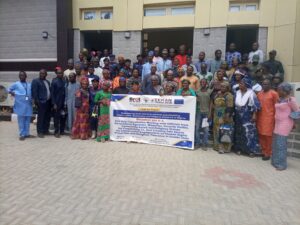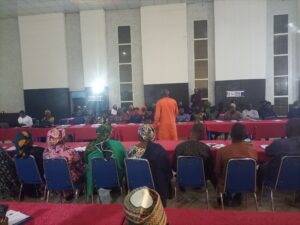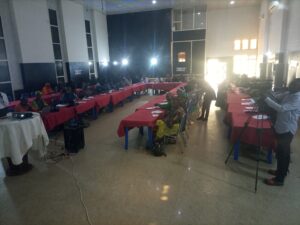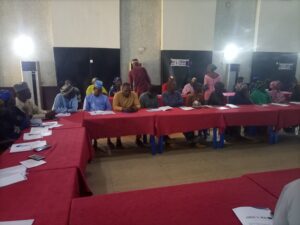
By Yunusa Isa, Gombe
The need for Gombe People to respect one another’s belief, strengthen human rights and remain brothers keepers has been stressed.
The encouragement was given by the lead resource person Dr Obadiah Samuel from University of Jos, during a stakeholder consultative meeting on human rights and religious tolerance, organized by Tekan Peace Desk in Gombe.

Presenting a paper titled “Understanding Religious Intolerance and Its Effects on Human Rights Protection” and another on “Strategies for Creating Safe Space for Human Rights Protection”, Obadiah said religious tolerance has to do with respecting other people’s beliefs and avoiding anything that could make them intimidated.
While encouraging people of the state to remain brothers keepers, the resource person maintained that religious tolerance brings about peace, social cohesion and national development.

On human rights, Dr Obadiah said national, regional and international treaties recognized right to life and right to religious belief amongst others for every human being, maintaining that it is a duty on individuals and states to recognize and safeguard same.
He urged participants to become advocates of peace by reaching the unreached, to step down the knowledge acquired during the meeting.
Some participants at the meeting Lami Andrew and Ali Alola Alfinti, identified ignorance, poverty, political sentiments and extremism as major factors responsible for religious intolerance in the state.
They however highlighted love, education, awareness creation, understanding for one another and fight against poverty as panacea to religious intolerance and human rights violations.

They assured to step down the knowledge to the grassroots.
Tekan Peace Desk with support from Brot and European Union is implementing a project ‘Faith for Peace’ in six communities; two each in Kwami, Yamaltu Deba and Ɓillliri local government areas of Gombe State.
The project focuses on empowering local actors to promote peace building, human rights, democracy and religious tolerance in Nigeria.
Participants at the meeting cut across community, religious and civil society organizations, media outfits, government & security agencies as well as human rights activists.
